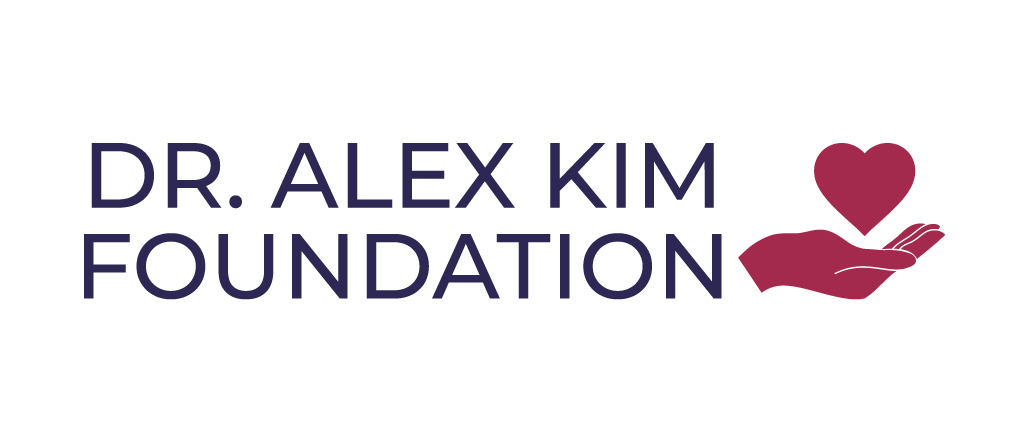The journey to citizenship is one of the most transformative milestones for immigrants, offering a sense of belonging, security, and the opportunity to fully participate in the civic and cultural life of a new country. However, the path can often be complex, requiring a deep understanding of legal procedures, access to reliable resources, and support networks. Below, we explore the essential resources available to immigrants to help navigate the citizenship process successfully.
Understanding Eligibility Requirements
The first step in the citizenship process is understanding eligibility. Many countries have specific requirements, such as residency duration, age, language proficiency, and a clean criminal record. Official Government Websites: Resources like USCIS.gov in the United States provide detailed guidelines on eligibility for naturalization. Immigration Lawyers: Consulting with a legal expert ensures individuals understand their unique situations and the best approach to meet requirements.
Language and Civics Education
Language proficiency and knowledge of a country’s history and government are often prerequisites for citizenship. Community Centers: Many offer free or low-cost English as a Second Language (ESL) classes and civics lessons tailored to the naturalization test. Online Platforms: Websites like USA Learns provide interactive courses on English and U.S. civics. Libraries: Local libraries frequently host language and civics workshops, offering accessible support.
Legal Support and Advocacy Groups
Navigating legal documents and procedures can be overwhelming without guidance. Nonprofit Organizations: Groups like Catholic Charities and the International Rescue Committee offer pro bono legal services and workshops to help with citizenship applications. Legal Clinics: Many cities host immigration clinics where individuals can receive free or discounted legal advice from professionals and law students. Immigration Lawyers: For more complex cases, hiring a lawyer specializing in immigration law ensures tailored support.
Financial Assistance Programs
Filing fees for citizenship applications can be a significant barrier for low-income immigrants. Fee Waivers: Programs such as the USCIS Fee Waiver or Reduced Fee Request are available for those who meet specific income thresholds. Community Fundraising: Many nonprofits and faith-based organizations assist with fundraising to cover application costs. Scholarships: Some institutions provide grants to cover educational resources or test preparation materials.
Preparing for the Naturalization Test
The naturalization test, which assesses language and civic knowledge, is a critical step. Practice Tests: The USCIS website offers sample questions and full practice tests. Study Materials: Organizations like the National Immigration Forum distribute free study guides, flashcards, and videos. Peer Study Groups: Joining a study group at a local community center or online can provide motivation and shared resources.
Mental Health and Emotional Support
The journey to citizenship can be stressful, with long waiting periods and complex challenges. Counseling Services: Many immigrant-focused nonprofits include counseling for individuals and families navigating the process. Support Groups: Sharing experiences with others going through the same journey fosters community and emotional resilience.
Building a Support Network
Creating connections within the community helps immigrants access critical resources and feel more integrated. Faith-Based Organizations: Churches, mosques, and synagogues often provide a welcoming environment and guidance on citizenship resources. Cultural Associations: Ethnic and cultural groups can offer targeted advice and support tailored to specific immigrant communities.
Utilizing Technology for Guidance
Technology simplifies the citizenship process by providing easy access to information and resources. Mobile Apps: Apps like CitizenPath and Pocket Immigration Lawyer offer guidance on filling out forms and tracking application statuses. Social Media: Following organizations like USCIS and local immigrant advocacy groups on platforms like Twitter or Facebook keeps individuals updated on policy changes.
Advocating for Policy Reforms
While navigating personal citizenship journeys, immigrants and allies can advocate for reforms to make the process more accessible. Joining Advocacy Groups: Organizations like the National Immigration Law Center work toward policies that benefit immigrant communities. Community Engagement: Sharing stories and experiences with lawmakers and the media humanizes the challenges of immigration and inspires change.
Celebrating Milestones
Becoming a citizen is a monumental achievement. Celebrating this accomplishment with family, friends, and the community reinforces a sense of belonging and pride.
The Alex Kim Foundation: Empowering Immigrants on Their Path to Citizenship
At the Alex Kim Foundation, we are dedicated to supporting immigrants at every stage of their journey. From providing language and vocational training to offering housing and medical assistance, we aim to remove barriers and empower individuals to thrive. We understand that citizenship is not just a legal status—it’s a gateway to new opportunities and a sense of belonging. Our programs focus on holistic support, ensuring immigrants have access to education, legal resources, and community networks.
If you or someone you know is pursuing citizenship, contact the Alex Kim Foundation today. Together, we can build a future where every immigrant feels valued, supported, and empowered. Visit our website or connect with us to learn more about our services and advocacy efforts. This journey is about more than paperwork; it’s about realizing dreams and embracing new opportunities. By leveraging the right resources, every immigrant can navigate the path to citizenship with confidence and hope.
Change Lives with the Dr. Kim Foundation
Contact Us Today
The journey to citizenship is one of the most transformative milestones for immigrants, offering a sense of belonging, security, and the opportunity to fully participate in the civic and cultural life of a new country. However, the path can often be complex, requiring a deep understanding of legal procedures, access to reliable resources, and support networks. Below, we explore the essential resources available to immigrants to help navigate the citizenship process successfully.
Understanding Eligibility Requirements
The first step in the citizenship process is understanding eligibility. Many countries have specific requirements, such as residency duration, age, language proficiency, and a clean criminal record. Official Government Websites: Resources like USCIS.gov in the United States provide detailed guidelines on eligibility for naturalization. Immigration Lawyers: Consulting with a legal expert ensures individuals understand their unique situations and the best approach to meet requirements.
Language and Civics Education
Language proficiency and knowledge of a country’s history and government are often prerequisites for citizenship. Community Centers: Many offer free or low-cost English as a Second Language (ESL) classes and civics lessons tailored to the naturalization test. Online Platforms: Websites like USA Learns provide interactive courses on English and U.S. civics. Libraries: Local libraries frequently host language and civics workshops, offering accessible support.
Legal Support and Advocacy Groups
Navigating legal documents and procedures can be overwhelming without guidance. Nonprofit Organizations: Groups like Catholic Charities and the International Rescue Committee offer pro bono legal services and workshops to help with citizenship applications. Legal Clinics: Many cities host immigration clinics where individuals can receive free or discounted legal advice from professionals and law students. Immigration Lawyers: For more complex cases, hiring a lawyer specializing in immigration law ensures tailored support.
Financial Assistance Programs
Filing fees for citizenship applications can be a significant barrier for low-income immigrants. Fee Waivers: Programs such as the USCIS Fee Waiver or Reduced Fee Request are available for those who meet specific income thresholds. Community Fundraising: Many nonprofits and faith-based organizations assist with fundraising to cover application costs. Scholarships: Some institutions provide grants to cover educational resources or test preparation materials.
Preparing for the Naturalization Test
The naturalization test, which assesses language and civic knowledge, is a critical step. Practice Tests: The USCIS website offers sample questions and full practice tests. Study Materials: Organizations like the National Immigration Forum distribute free study guides, flashcards, and videos. Peer Study Groups: Joining a study group at a local community center or online can provide motivation and shared resources.
Mental Health and Emotional Support
The journey to citizenship can be stressful, with long waiting periods and complex challenges. Counseling Services: Many immigrant-focused nonprofits include counseling for individuals and families navigating the process. Support Groups: Sharing experiences with others going through the same journey fosters community and emotional resilience.
Building a Support Network
Creating connections within the community helps immigrants access critical resources and feel more integrated. Faith-Based Organizations: Churches, mosques, and synagogues often provide a welcoming environment and guidance on citizenship resources. Cultural Associations: Ethnic and cultural groups can offer targeted advice and support tailored to specific immigrant communities.
Utilizing Technology for Guidance
Technology simplifies the citizenship process by providing easy access to information and resources. Mobile Apps: Apps like CitizenPath and Pocket Immigration Lawyer offer guidance on filling out forms and tracking application statuses. Social Media: Following organizations like USCIS and local immigrant advocacy groups on platforms like Twitter or Facebook keeps individuals updated on policy changes.
Advocating for Policy Reforms
While navigating personal citizenship journeys, immigrants and allies can advocate for reforms to make the process more accessible. Joining Advocacy Groups: Organizations like the National Immigration Law Center work toward policies that benefit immigrant communities. Community Engagement: Sharing stories and experiences with lawmakers and the media humanizes the challenges of immigration and inspires change.
Celebrating Milestones
Becoming a citizen is a monumental achievement. Celebrating this accomplishment with family, friends, and the community reinforces a sense of belonging and pride.
The Alex Kim Foundation: Empowering Immigrants on Their Path to Citizenship
At the Alex Kim Foundation, we are dedicated to supporting immigrants at every stage of their journey. From providing language and vocational training to offering housing and medical assistance, we aim to remove barriers and empower individuals to thrive. We understand that citizenship is not just a legal status—it’s a gateway to new opportunities and a sense of belonging. Our programs focus on holistic support, ensuring immigrants have access to education, legal resources, and community networks.
If you or someone you know is pursuing citizenship, contact the Alex Kim Foundation today. Together, we can build a future where every immigrant feels valued, supported, and empowered. Visit our website or connect with us to learn more about our services and advocacy efforts. This journey is about more than paperwork; it’s about realizing dreams and embracing new opportunities. By leveraging the right resources, every immigrant can navigate the path to citizenship with confidence and hope.

